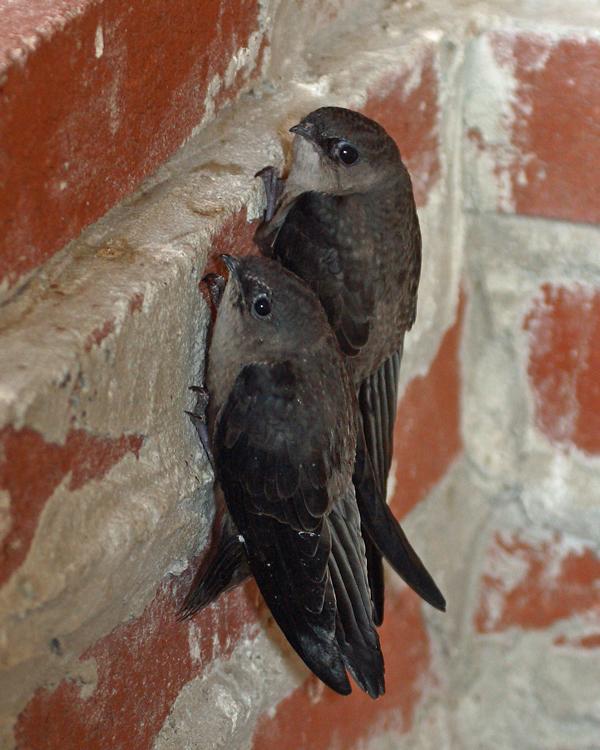(THE PICKET) – Shepherd University staff met Oct. 28 with wildlife experts and representatives from the U.S. Fish and Wildlife Service, the West Virginia Department of Natural Resources, and the Potomac Valley Audubon Society to discuss plans to provide alternative habitat to chimney swifts to be displaced by Sara Cree Hall’s demolition in spring 2017.
The Sara Cree chimney is one of the largest chimney swift roosts in West Virginia for the birds to congregate during their fall migration to South America, and as many as 1,400 have been counted flocking into the chimney.
Plans to accommodate the birds are still under development, says Valerie Owens, Shepherd’s media contact. Shepherd University officials agreed to uncap the boiler room chimney in nearby Knutti Hall, which was used by chimney swifts in the past before being capped. Shepherd, along with the other stakeholders involved, are also pursuing the possibility of building a roosting tower to replace the roosting site in Sara Cree’s chimney.
A final decision on a new roosting tower has not been made. University officials and Shepherd and its partners are trying to determine the best practices that will ensure quick and long term occupation of the chimney swifts.
One location being considered for a roost is the land around the storm water retention-pond near Dunlop and Printz halls, as the abundance of insects in the area is seen as potentially beneficial to the swifts, according to Owens. Bricks from Sara Cree are being considered for use to build the new structure.
The project is anticipated to be completed in 2017 and will likely be funded through a combination of grants and through community fundraising support.
The Potomac Valley Audubon Society will be accepting donations for the project. For more information, Bridget Tinsley can be contacted at bridget@potomacaudubon.org. Tinsley is the Potomac Valley Audubon Society’s land and watershed program manager.
Chimney swifts are a rapidly declining species that relies heavily on man-made chimneys to roost and breed. They spend the warmer months in the Eastern U.S. and Canada, and fly to South America in the fall to overwinter.
Demian Nunez is the managing editor of The Picket. He can be reached at dnunez01@rams.shepherd.edu.

Leave a Reply